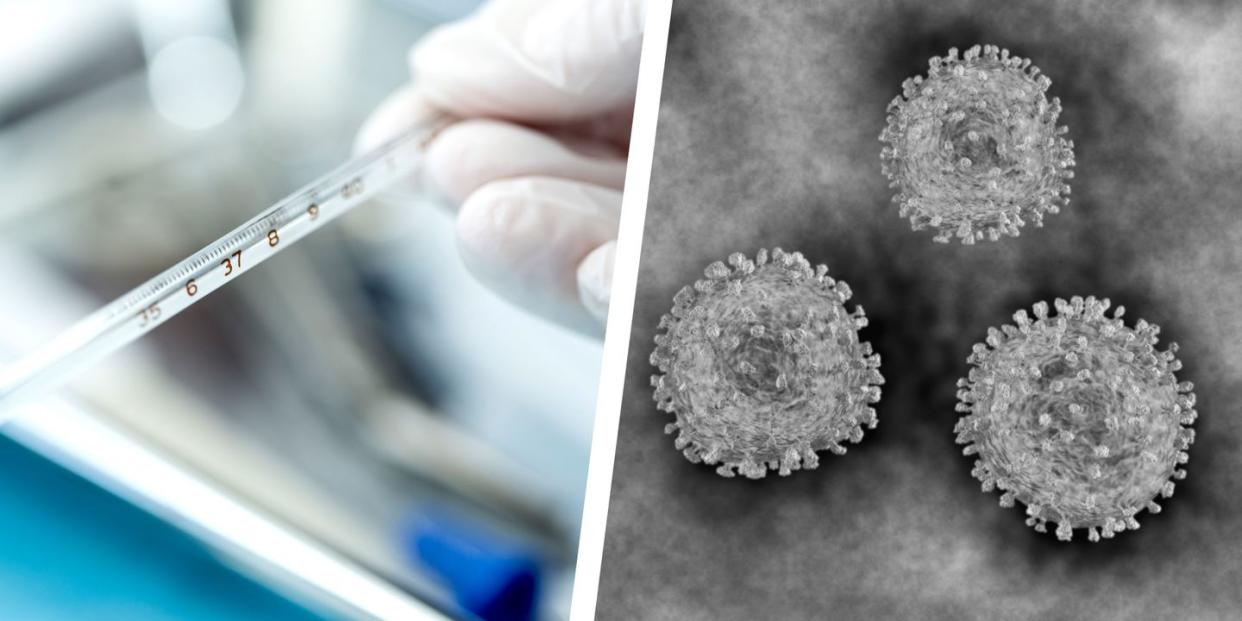What Treatment for the Coronavirus Disease Looks Like

One of the challenges that’s creating a lot of unease about the new coronavirus that causes COVID-19 is that there’s currently no specific drug that treats the disease.
So if you suspect you have COVID-19, how should you treat it?
First of all, call—don’t go—to your doctor (going there first could expose you to more germs or spread yours around). They’ll ask you screening questions to determine whether you need to go to a facility to be tested to see if your symptoms are from this new coronavirus.
If the test is positive, the CDC instructs medical professionals that people “should receive supportive care to help relieve symptoms. For severe cases, treatment should include care to support vital organ functions.”
Not everyone infected with 2019-nCoV—that’s the actual name of this coronavirus—will have serious repercussions. The New York Times reports on a study from China that suggested that more than 80 percent of confirmed cases are mild.
But that suggests that 20 percent aren’t mild. People in that group could see treatments designed to help with respiratory distress, like oxygen therapy. They could also receive antibiotics because “bacterial co-infection is possible,” according to the WHO. But keep in mind that antibiotics don’t target the virus.
In some patients, sepsis develops, and doctors monitor patients closely for that and deliver treatments appropriate to the patient’s status and health background.
Coronavirus disease treatment myths and confusions
Keep in mind that vaccines can’t “treat” a disease, because they are preventive measures. Since there isn’t currently a vaccine for this new coronavirus, experts are focused on other strategies that can helping people prevent transmitting and acquiring the virus in the first place. Frequent and appropriate hand washing is a doable first line of defense, which is why you keep hearing that message.
Vaccines against pneumonia don’t protect you against the new coronavirus, either, according to the World Health Organization. “The virus is so new and different that it needs its own vaccine,” the organization explains on its website. Of course, if you’re in the group who should get a pneumonia vaccination (the CDC recommends it for adults age 65 and older and certain other groups), you should have that. Just be aware it’s not a COVID-19 prevention strategy.
For more information on the prevention and spread of the disease, check out the answers to these 20 common questions about the coronavirus and COVID-19, the disease it causes.
You Might Also Like

